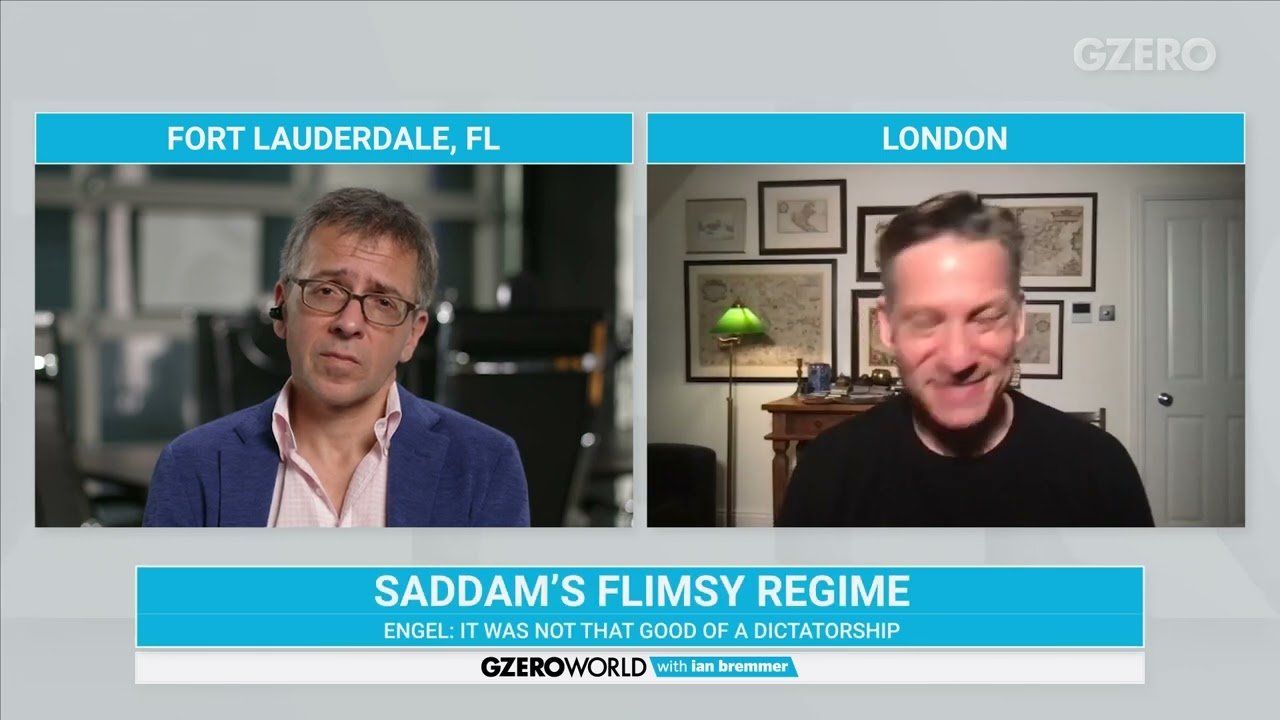GZERO World Clips
Iraq then and now: Reflections from NBC's Richard Engel

Iraq then and now: Reflections from NBC's Richard Engel | GZERO World

As a young freelance journalist, Richard Engel was one of the only US TV journalists to broadcast from Baghdad throughout the US-led invasion of Iraq. On the 20th anniversary of the start of the Iraq War, Engel, NBC's chief foreign correspondent, shares the story of how he ended up reporting on the ground and what he saw after troops arrived.
Despite limited access for journalists, Engel was able to get into Iraq by applying "human shield" visa and entered the country under the guise of a peace activist. What he found upon arrival was a population beaten down by years of dictatorship, and a choatic, disorganized government. As the invasion began, more and more people came out of the shadows, and expressed their joy that “ Americans were coming in and getting rid of Saddam,” according to Engel.
However, the aftermath of Saddam's removal was a different story. "When Saddam was driven out of power, there was a wonderful reception for about a year. And then it got very, very ugly," Engel says. He attributes the increasing animosity to mistakes made by the American administration and lingering resentment by the Sunni Muslim community. This led to a dangerous and hostile environment that "changed the dynamic" of the region.
Watch the GZERO World episode: Iraq War's legacy: Loss of lives, rise of ISIS, & political turmoil
‘Godfather of AI’ Geoffrey Hinton talks with Ian Bremmer about why he believes advanced AI could surpass human intelligence and why creating AI with ‘maternal instincts’ might be humanity’s best chance at survival.